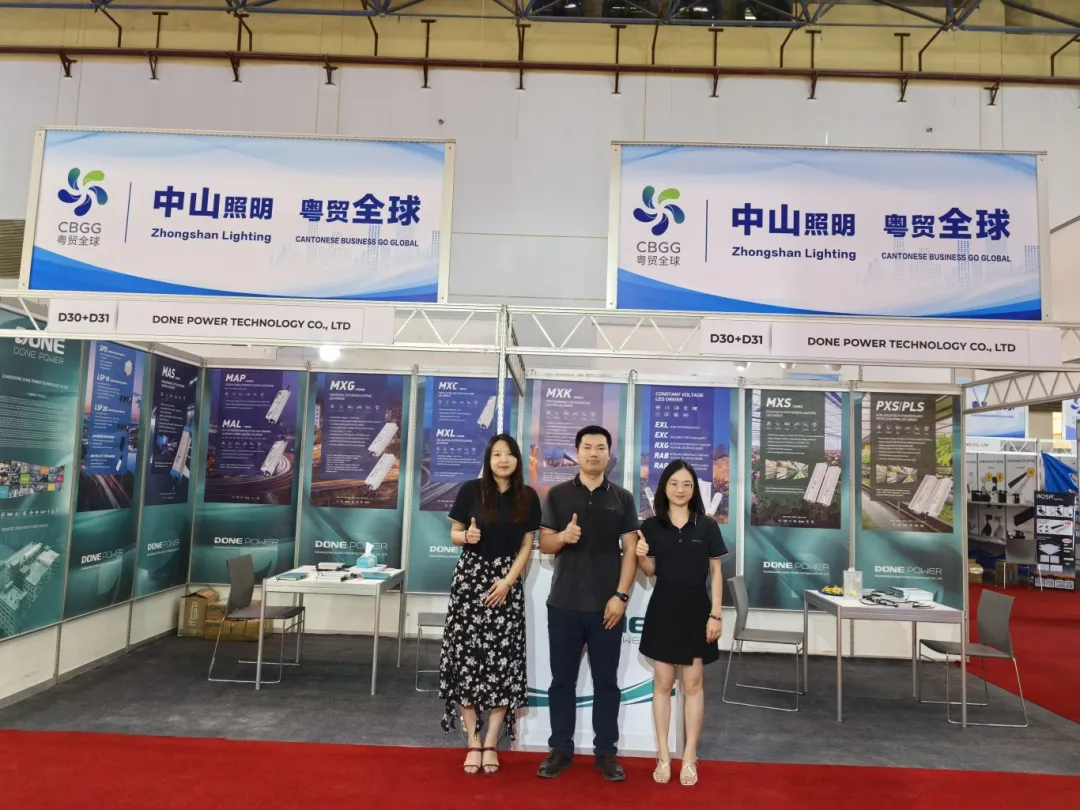An Ultimate Guide to LED Light Drivers in 2024
2024-04-19
LED drivers are the heart of any luminaire. It’s an electronic device that regulates the power supply to LED lights. In this way, it helps deliver current to the LED modules. Carefully designing and selecting these components ensures that lighting fixtures perform optimally. Not to mention, it also ensures their longer operational lifespan and higher energy efficiency. A comprehensive understanding of LED light driver solutions can help you design high-quality lighting.
Comprehensive Understanding About LED Drivers: Various Dimensions
Understanding the different dimensions of an LED light driver is crucial for lighting designers to choose the appropriate driver for each application. Let’s examine some key dimensions that define driver characteristics.
1. External vs. Interior LED Driver
LED drivers can be placed either inside or outside the luminaire enclosure. External drivers reside outside, while interior drivers fit within the luminaire. External drivers facilitate heat dissipation, while interior types minimize space and weight.
However, the thermal situation inside the lights becomes worse as the power further increases. Hence, external LED drivers find more adoption in high-power applications like street lights, floodlights, stadium lights, and grow lights.
2. Switching Power Supply vs. Linear Regulator
Drivers use either a switching power supply or a linear regulator to deliver stable current to LEDs. Switching types are smaller and more efficient, while linear regulators offer simplicity and lower electromagnetic interference.
3. Isolated vs. Non-isolated LED Driver
An isolated LED light driver provides extra protection with shielding between input and output circuits. Non-isolated types have a direct connection, reducing size at the cost of safety compliance.
4. Constant Current vs. Constant Voltage LED Driver
Constant current drivers keep LED current unchanged despite voltage fluctuations, ensuring color consistency. Constant voltage types vary LED current as the voltage fluctuates, yielding variable brightness and color.
Constant current drivers are often preferred in scenarios where uniformity in brightness and color is essential, such as in display panels or architectural lighting. Constant voltage drivers can be used when flexibility in design and cost-effectiveness are more critical, as in certain decorative lighting applications.
5. Dimmable vs. Non-dimmable LED Driver
A dimmable LED light driver smoothly adjusts light output by varying current via a dimmable LED power supply, while non-dimmable types supply fixed current for constant brightness without a dimming capability.
6. Waterproof vs. Non-waterproof LED Driver
Waterproof drivers withstand moisture and vibration and are suitable for wet locations. Non-waterproof types require protection from exposure to liquids or high-humidity environments.
Application Scenarios of LED Drivers
LED drivers serve diverse lighting applications. Understanding their unique performance requirements aids in the selection of suitable driver types. The following examines common lighting scenarios and optimal LED light driver features for each:
1. Tunnel LED Lighting
Major thoroughfares and tunnels necessitate robust, high-output drivers tolerating wide temperatures. Constant-current waterproof drivers maintain luminance. Dimmable models adjust the light for traffic variations.
2. Industrial LED Lighting
Factories and specialty tasks involve strenuous conditions. Rugged, non-isolated drivers encompassing industry certifications can operate under extreme environments. Wide input drivers adapt to unstable power sources.
3. Plant Fields LED Lighting
Horticulture and field lighting demand controlled spectra. Dimmable, programmable drivers precisely tailor light recipes critical for plant processes or sporting visibility. Rapid startup times prevent dark periods hampering growth.
4. Outdoor Smart Street LED Lighting
Networked street lighting power supply lamps connect to management systems. Programmable, wireless, dimmable LED light driver varieties receive commands to optimize light distributions. Over-the-air upgrades enable remote performance enhancements.
How to Find the Best LED Driver
Selecting LED drivers involves weighing key performance metrics. Understanding factors like these aids decision-making:
1. LED Driver Efficiency
Higher efficiency reduces heat, energy use, and costs. Drivers above 90% efficiency minimize energy losses as heat while delivering more lumens per watt.
2. Power Factor (PF) and Total Harmonic Distortion (THD)
High PF near 1 decreases stress on main power grids and lowers utility bills. THD below 20% creates less electronic noise or radio frequency interference issues.
3. Surge Protection for LED Drivers
Overvoltage transients damage unshielded drivers over time. Built-in safeguards against surges induced by lightning strikes or switching, prolonging the working lifespan.
4. LED Driver Lifetime, Reliability, and Certification
Higher-rated operational hours provide durable lighting. International certifications confirm thermal, electrical, and mechanical safety standards compliance for liability assurance. Quality manufacturers back products with lengthy warranties.
Conclusion
In summary, thorough knowledge of LED light driver types, uses, and selection variables equips lighting designers with informed choices. A balanced consideration addressing performance, functions, compliances, lifecycle, and commercial factors leads to robust, future-proofed luminaires. At Done Power, our reliable drivers benefit diverse applications with high power conversion proficiency.
We have a modern LED driver manufacturing facility with nearly 1,000 employees dedicated to rigorous research, development, and production. Customers value our reliable and efficient LED light driver solutions that meet international safety and EMC standards, backed by competitive prices and prompt lead times. Visit our website to browse our full product catalog for trusted LED driver solutions to accentuate any luminaire design.
Related Information
2024-05-31
2024-09-12
Done Power's New LED Drivers Unveiled
2024-07-26





